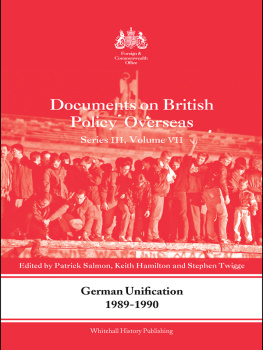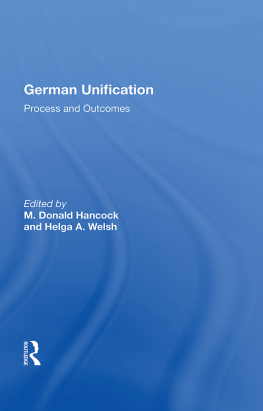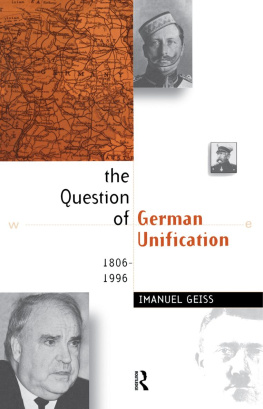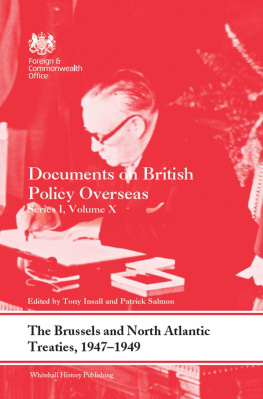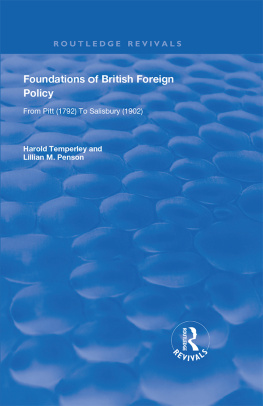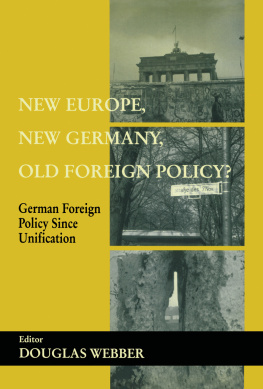WHITEHALL HISTORIES: FOREIGN AND COMMONWEALTH OFFICE PUBLICATIONS
Series Editors: Keith Hamilton and Patrick Salmon
ISSN: 1471-2083
FCO historians are responsible for editing Documents on British Policy Overseas (DBPO) and for overseeing the publication of FCO Internal Histories.
DBPO comprises three series of diplomatic documents, focusing on major themes in foreign policy since 1945, and drawn principally from the records of the Foreign and Commonwealth Office. The latest volumes, published in Series III, are composed almost wholly of documents from within the thirty-year closed period, which would otherwise be unavailable to the public.
Since the early 1960s, several Internal Histories have been prepared by former or serving officers, the majority of which concentrated upon international developments and negotiations in which the UK has been directly involved. These were initially intended for use within the FCO, but some of the more substantial among them, studies that offer fresh insights into British diplomacy, are now being declassified for publication.
Published DBPO volumes:
SERIES I: 19451950
Volume I: The Conference at Postdam, JulyAugust 1945
0 11 591682 2
Volume II: Conferences and Conversations, 1945: London, Washington and Moscow
0 11 591683 0
Volume III: Britain and America: Negotiation of the US Loan, 3 August7 December 1945
0 11 591684 9
Volume IV: Britain and America: Atomic Energy, Bases and Food, 12 December 194531 July 1946
0 11 591685 7
Volume V: Germany and Western Europe, 11 August31 December 1945
0 11 591686 5
Volume VI: Eastern Europe, August 1945April 1946
0 11 591687 3
Volume VII: The UN, Iran and the Cold War, 19461947
0 11 591689 X
Volume VIII: Britain and China, 19451950
SERIES II: 19501960
Volume I: The Schuman Plan, the Council of Europe and Western European Integration, May 1950December 1952
0 11 591692 X
Volume II: The London Conference: Anglo-American Relations and Cold War Strategy, January June 1950
0 11 591693 8
Volume III: German Rearmament, SeptemberDecember 1950
0 11 591694 6
Volume IV: Korea, June 1950April 1951
0 11 591695 4
SERIES III: 1960
Volume I: Britain and the Soviet Union, 19681972
0 11 591696 2
Volume II: The Conference on Security and Co-operation in Europe, 19721975
0 11 591697 0
Volume III: Dtente in Europe, 19721976
0 7146 5116 8
Volume IV: The Year of Europe: America, Europe and the Energy Crisis, 19721974
0 415 39150 4
Volume V: The Southern Flank in Crisis, 19731976
0 7146 5114 1
Volume VI: Berlin in the Cold War, 19481990
978-0-415-45532-9
Volume VII: German Unification, 19891990
978-0-415-55002-4
First published 2010
by Routledge
2 Park Square, Milton Park, Abingdon, Oxon OX14 4RN
Simultaneously published in the USA and Canada
by Routledge
270 Madison Avenue, New York, NY 10016
Routledge is an imprint of the Taylor & Francis Group, an informa business
This edition published in the Taylor & Francis e-Library, 2010.
To purchase your own copy of this or any of Taylor & Francis or Routledges collection of thousands of eBooks please go to www.eBookstore.tandf.co.uk.
2010 Crown Copyright
Publishers note
This book has been prepared from a camera-ready copy
supplied by the editors
All rights reserved. No part of this book may be reprinted or reproduced or utilized in any
form or by any electronic, mechanical, or other means, now known or hereafter invented,
including photocopying and recording, or in any information storage or retrieval system,
without permission in writing from the publishers.
Published on behalf of the Whitehall History Publishing Consortium. Applications to
reproduce Crown copyright protected material in this publication should be submitted in
writing to: HMSO, Copyright Unit, St Clements House, 216 Colegate, Norwich NR3 1BQ.
Fax: 01603 723000. E-mail:
British Library Cataloguing in Publication Data
A catalogue record for this book is available from the British Library
Library of Congress Cataloging-in-Publication Data
A catalog record has been requested for this book
ISBN 0-203-86663-0 Master e-book ISBN
ISBN10: 0-415-55002-5 (hbk)
ISBN10: 0-203-86663-0 (ebk)
ISBN13: 978-0-415-55002-4 (hbk)
ISBN13: 978-0-203-86663-4 (ebk)
PREFACE
By 1989 the repercussions of the reforms inaugurated by Mikhail Gorbachev following his appointment as General Secretary of the Soviet Communist Party four years earlier were being felt throughout Europe. The two German states, whose division had formed the bedrock of European security since 1949, were profoundly sensitive to the potential for change that Mr Gorbachev had unleashed. From the British point of view, the most urgent problem posed by Germany in early 1989 had to do with the Federal Republics role in the Western Alliance. Although their origins could be traced much further backnotably to NATOs controversial twin-track decision on the deployment of intermediate nuclear missiles in December 1979the growing assertiveness of the West German Government, and the increasing reluctance of its population to accept some aspects of Alliance membership such as the use of low-flying aircraft in NATO exercises, could also be attributed to a diminishing sense of threat from the Soviet Union. By the spring of 1989 a second problem was beginning to emerge as it became clear that the citizens of East Germany were increasingly unwilling to accept the constraints imposed by a visibly moribund regime.
As early as January 1989 the Foreign Secretary, Sir Geoffrey Howe, ordered a study to be made of the implications of a possible removal of the Berlin Wall.
As one of the victors of the Second World War and as an ally since 1955 of the Federal Republic, the United Kingdom possessed an extensive range of rights and responsibilities in respect of German territory. That territory, defined as the area lying within the borders of the German Reich on 31 December 1937, had been divided in 1945 into four occupation zones, with a separate four-power administration of Berlin and with the area east of the Rivers Oder and Neisse placed under Polish administration. After 1949 the three Western allies, Britain,
1 Series III, Vol. VI, Berlin in the Cold War, 1948-1990, No. 350.
2 Reunification technically implied a return to the Germany of 1937, including the territory east of the Oder-Neisse line placed under Polish administration in 1945 and the city of Knigsberg (Kaliningrad), which had been incorporated into the Soviet Union; unification referred only to the FRG and the GDR. Until 1989 British officials and politicians made little distinction between the two terms, and most spoke of reunification. By the beginning of 1990 unification had become the preferred term in almost all official communications.

